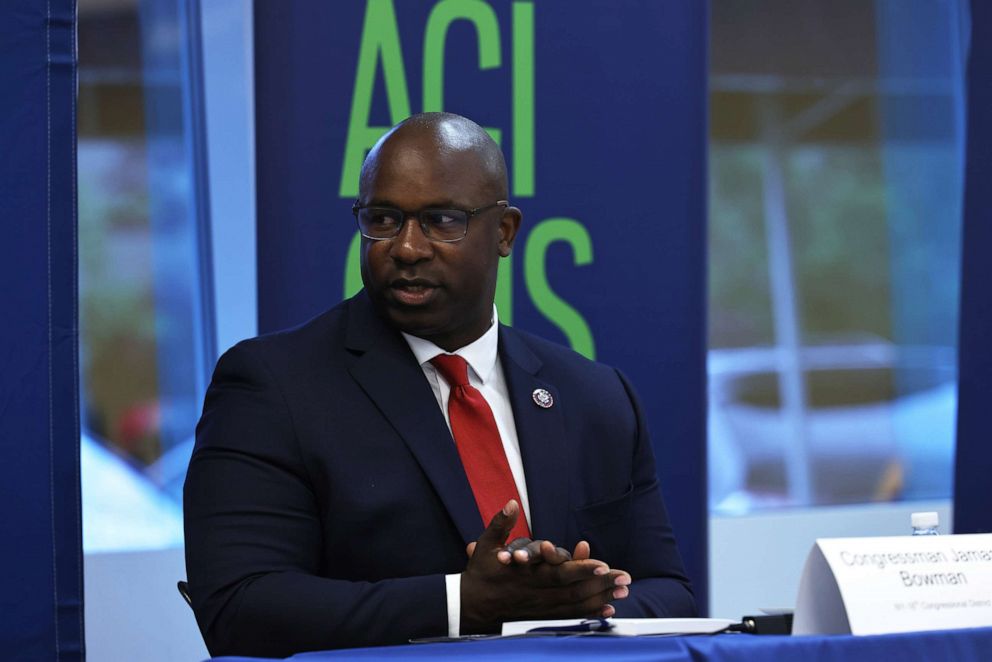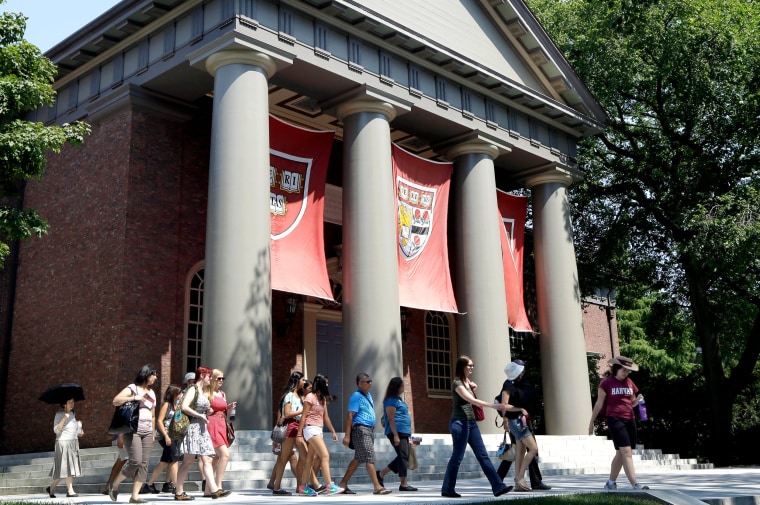Regarding legacy admission, there have been quite some controversy and plenty made headlines in recent years.
“All students deserve an equitable opportunity to gain admission to institutions of higher education, but students whose parents didn’t attend or donate to a university are often overlooked in the admissions process due to the historically classist and racist legacy and donor admissions practices at many schools across the country,” Bowman said in a statement.
In recent years, several institutions, including John Hopkins University and Amherst College, have ended their practice of legacy admission.

According to the ABC news source, a bill introduced in Congress Wednesday by Democratic lawmakers seeks to end legacy admissions at many U.S. colleges and universities.
The bill was introduced in an attempt to address the “unfair and inequitable admissions process that disproportionately benefits wealthy, white and well-connected students”. Essentially, this bill would allow the education secretary to waive the legacy preference ban for institutions like historically Black colleges and universities, tribal colleges, and minority-serving institutions, that have been admitting a high level of underrepresented students already.
So what exactly is “Legacy”?
In college admissions, a “legacy” student is defined as someone whose parents attended and/or graduated from the institution to which the student is applying.
From what we might have known, legacy students tend to receive a big boost in admission to private universities in the U.S. However, this excludes some prestigious schools, such as MIT.
Legacy Admission is a practice in which colleges give special and extra consideration to children of alumni when deciding who to admit. The main reason that universities are using legacy admission is because of how much they care about their school’s yield, in that case, admitting qualified students that will “actually enroll”. When one student applies as legacy students they are demonstrating a strong interest in attending the institutions, and this is what the colleges and universities want out of this practice. In addition, colleges and universities can use this opportunity to maintain alumni engagement and return the favor of how they support the school (in the hope that the alumni community will continue giving back to the school in the future).

A study of thirty elite colleges found that primary legacy students are an astonishing 45% more likely to get into highly competitive colleges or universities than non-legacy students.
With only a 6% acceptance rate, Harvard University’s acceptance rate for legacies has a whopping 33%. It is not hard to see that Harvard alumni are disproportionately wealthy; according to The Harvard Crimson, nearly a third of legacy freshmen hail from half-a-million-dollar households.
According to The Century Foundation, legacy preferences are common among selective colleges. People that support legacy admission believe it can help boost an institution’s ability to award financial assistance to low-income students.
“Legacy gives an unfair advantage to students with relatives who are alumni of a given school. By contrast, low-income students and members of underrepresented communities are far less likely to have relatives who grated from there.”
On the other hand, we have people that voiced their opinion to ban the legacy admission for the better of the minorities that do not feel like they have a fair chance of getting into the colleges they want, so they insist on this preferential treatment to end. But at the end of the day, legacy admission is legal and is up to the institution to continue using this as their admission strategy or not.

I believe people are paying to get a good education record. There is almost no way that one can be a strong applicant without having a wealthy family background, I also believe a well-extended social network is necessary for one to have a higher chance of getting into those prestigious colleges in the U.S. Though many legacy applicants have the privilege to show their relatives academic profile, they also demonstrate excellent academic records as their parents have sent them to receive top-tier education since they were a child.
Work Sources
https://www.ivywise.com/ivywise-knowledgebase/resources/article/does-legacy-status-improve-your-chances-in-college-admissions/